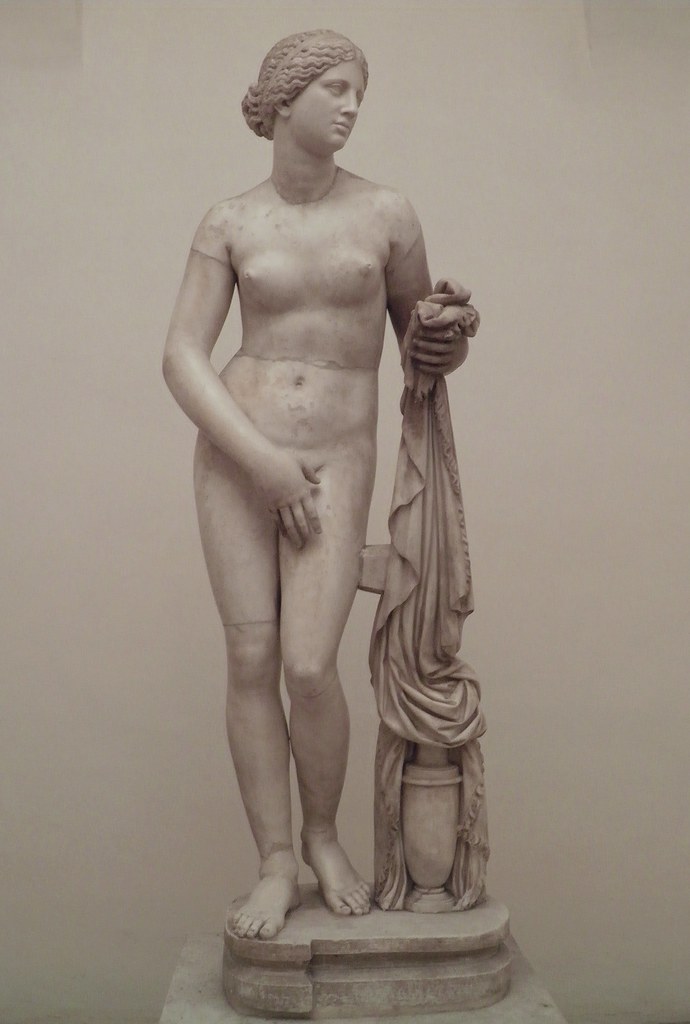 |
| Praxiteles's Aphrodite of Knidos, a Classical celebration of human form. |
This heavily contradicts the beliefs of pre-Renaissance Christianity. The general belief during that period was that people were fallen souls and had to live by the Church’s rules to have a chance at having any worth and getting to heaven. People in anything lower than the upper class were thought of and treated like tools, made to work constantly in a feudalistic society. In any class, though, the Catholic church was law, and any education or art centered around it.
Plato, on the other hand, believed that eudamonia, happiness, was the highest goal of thinking. A fellow philosopher, Cicero also considered the individual variations within his audiences and shaped his persuasive techniques accordingly. He recognized that some people were not educated or willing enough to be persuaded by logic alone and decided it was okay to use emotion as a persuader with those audiences. As Somer discusses in her post, speakers and artists must always take the audience into consideration.
Altered Performances
The essence of the Renaissance is captured in Castiglione's The Courtier: "They are none of them of little importance, all those things that help the courtier gain the favor of his prince." The Renaissance was a celebration of human form, ability, intelligence, and importance. Artists such as Da Vinci followed the tradition of the Classical period and studied math and sciences to perfect the perspective they used in their pieces. People like Montaigne sought adventure and wrote thoughtfully on their travels. As Alyssa Pike pointed out in her post, Montaigne even argues that cannibals are more humane than those in the civilized western world. He comes to argue that every soul has equal worth.
 |
| The Reformation brought a return to the simplicity of the bible. |
The elaborate artwork and ponderings on adventures achieved their purpose when they were seen and reflected on by the public. When the Reformation came to Europe, things changed a bit. There was still an emphasis on humanism, but in a different way. Churches had been the most common place to see extravagant pieces of art, but with Protestantism they became simple places for individual worship.
As Ana Rees pointed out in a discussion the other day, the new way of life further emphasized Ad Fontes—a return to the simplicity of the Bible. People's individuality became more valued as it pertained to inwardly reflecting on one's relationship with God. John Donne's poetry exemplifies this. He wrote it for himself as a way to connect to God, and even when other people read it, they used it to do the same for themselves. In other words, the purpose of being a human shifted from impressing a public audience to reflecting for a private one.
Images
Aphrodite of Knidos
Bible

No comments:
Post a Comment